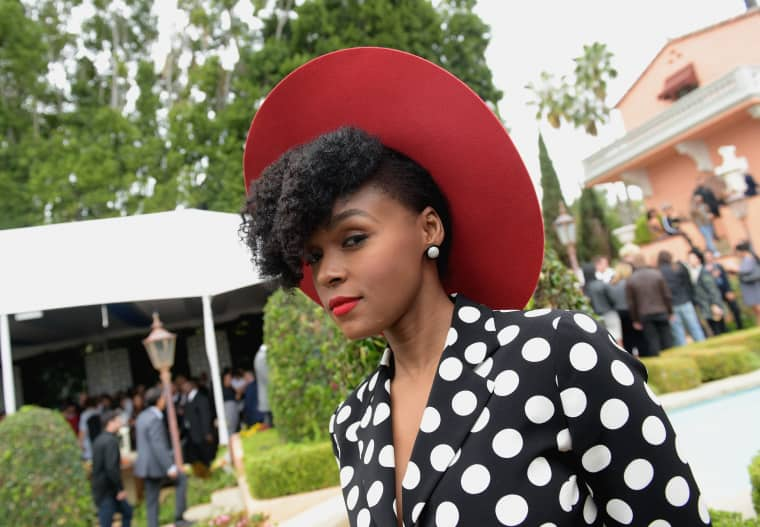Janet Jackson recently announced that she will release her first new material in seven years on her own brand new BMG imprint, Rhythm Nation. In the ‘90s, Jackson was known for signing two multi-million dollar deals with major label Virgin that made her the highest paid artist of her day; the fact that in 2015 she would choose to self-release on her own label could be seen as a sign of the times. Today, with plummeting record sales, the increased importance of streaming, and the relative ease with which anyone can self-promote and distribute online, it seems every other artist is announcing their own record label. And it’s not just Soundcloud hustlers: across the spectrum, experimental pop star Janelle Monae is backing Jidenna’s classic stylings on Wondaland Records; New York underground rapper and performance artist Mykki Blanco is shedding a light on a little-known scene with Dogfood Music Group, and breakthrough London MC Little Simz is eschewing the traditional industry route to release her debut album on her own imprint AGE 101. If you’re an artist considering putting out your music without—as Atlanta rapper Father of Awful Records once said—signing a 360 deal with a white man, take in this wisdom from 10 artists who’ve been down that road themselves.
Know your core values
 Photo by Jason Kempin/Getty Images
Photo by Jason Kempin/Getty Images
JANELLE MONAE [WONDALAND]: Write down your core values. Why do you want to start a label? Is it for just for your own gain or truly to help enrich the lives of others through music and art? One of my core values is to make my community in Kansas and young girls proud by putting out quality music and art that will inspire them to embrace the things that make them unique, even if it makes others uncomfortable.
But remember it's okay to ask for help
 Michael Loccisano/Getty Images
Michael Loccisano/Getty Images
MEREDITH GRAVES [HONOR PRESS]: It’s totally okay to ask for help. I was so scared that if I couldn't do everything on my own, that people would think I was ignorant, incapable, not cut out to be a label director. I realized quickly that there's a reason labels have different people working on finances, press, project management, etc. It's very hard for one person to do everything when you're operating at any level bigger than "bedroom." I also never took into account that my friends might want to help me! They're my biggest cheerleaders and they're excited about the bands I'm working with.
Open doors for others
JANELLE MONAE [WONDALAND]: In addition to wanting to help the careers of artists I believe in, I was inspired to start Wondaland Records after seeing there was a big absence of female entrepreneurs in the music industry. I’ve always been inspired to do more than just be an artist in the industry, and treasured businesswomen such as Julie Greenwald and Sylvia Rhone, and admired artists such as Madonna and what she did with Maverick Records. I hope to shape culture and open up more doors for not just women of color but women globally who have big ideas and vision.
And always punch above your weight
DRE SKULL [MIXPAK]: Because of the time we’re operating in, and the power of the internet, the vision was to see if we could grow to a place where we could put out projects that could compete with any other label. Which is to say, we could support an artist, and put them on a platform which is very powerful. The phrase is “punching above your weight.” Try to be doing things above your level. With an artist like Popcaan—obviously he’s a very big artist [Popcaan had a hit with Vybz Kartel, and was featured on tracks by Pusha T and Kanye West before signing to Mixpak in 2014.] But in a way, it’s like whether he’s with Mixpak or a major label, there wouldn’t be a difference, in terms of where he can go. And yet we’re a small company and we’re putting a lot of care into that project.
Do it for the collective, not for yourself
AÏSHA DEVI [DANSE NOIRE]: I had this romantic vision of a collective platform, where artists [are] free of genre. The compulsion should be collectiveness and not an ego thing. We are four [people] working on the label; the cohesive dynamic is huge, that is very much part of the Danse Noire identity, a communion. Extend a family, transgress hierarchy, and use independent platforms such as Bandcamp.
And ultimately, learn to love your business like you love your craft
DAWN RICHARD [OUR DAWN ENTERTAINMENT]: There is so much more to business besides just being talented. The money that needs to go into radio so you can get into the Top 10 is a whole other ball game. To be able to get on TV shows, you’ve got to have a booker, or an agent. You’re going to need financial backing, because of the amount of money it takes to get your business off the ground—that doesn’t change whether you’re a bakery, a law firm or an artist. It’s all the same. Treat it as such. You’re building a business. That’s something I did not know. I thought if I just sang real good, that was the business. That’s not reality. Really, you’ve got to be two things at once—well, 175 things at once. I have to work on my craft, and then I have to work on my business, and I have to do that every day. I have to schedule it, get the money for it, bank it, and then deliver vocally, every time. But it’s fucking worth it.